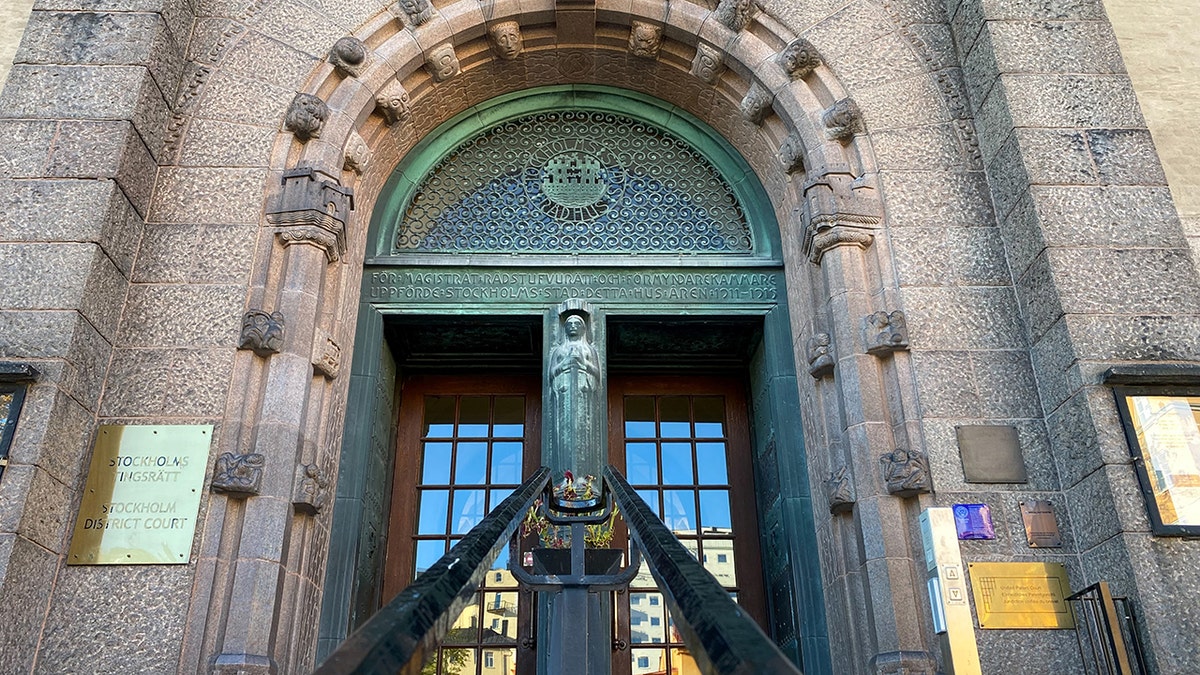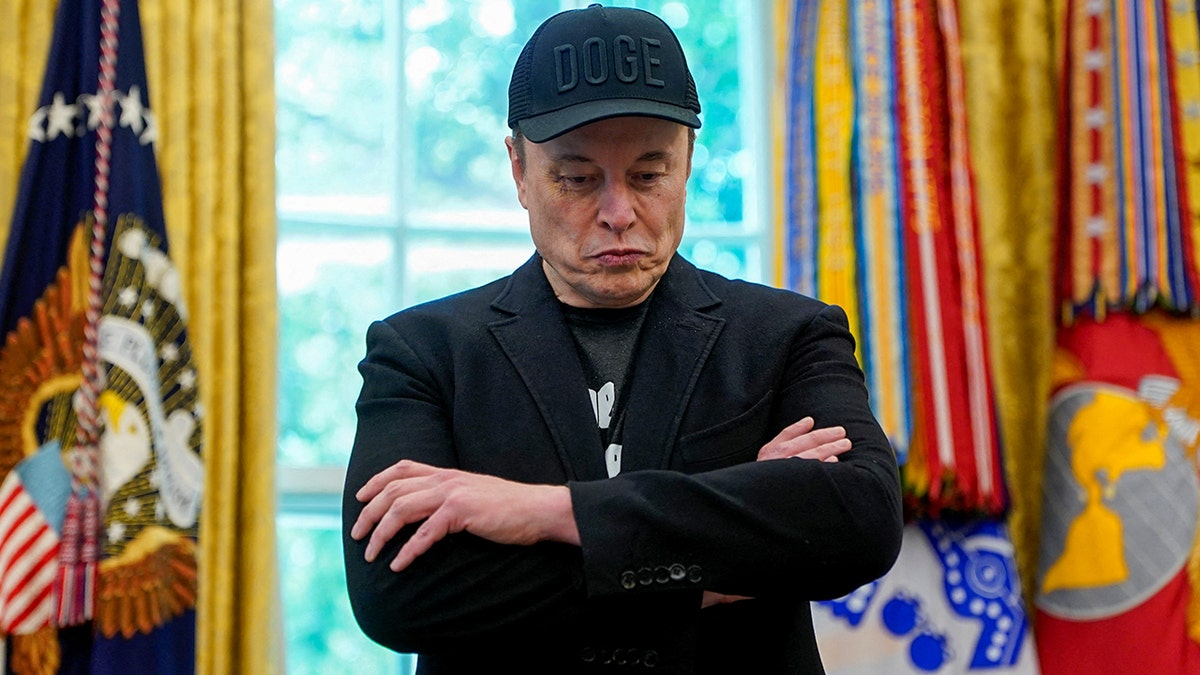Share this @internewscast.com
A controversial decision by a Swedish appeals court to allow a convicted rapist to remain in the country has sparked widespread outrage, casting a critical spotlight on Sweden’s judicial practices. The court decided against deporting the offender, arguing that his crime against a 16-year-old girl did not qualify as “exceptionally grave.”
Yezied Mohamed, an Eritrean national residing illegally in Sweden, was sentenced to three years in prison for the rape of a teenage girl in Skellefteå on September 1, 2024. The Court of Appeal for northern Norrland confirmed to Fox News Digital that although the crime was indeed serious, it did not fulfill the criteria for deportation due to its specific characteristics and brief duration.
The decision was met with immediate criticism from Prime Minister Ulf Kristersson, who vowed to implement more stringent deportation laws. “No one should live in fear of encountering their attacker or rapist in public,” Kristersson asserted. “Individuals who violate our laws and are not citizens should be expelled from Sweden.”
In a written explanation provided to Fox News Digital, Judge Lars Viktorsson elaborated that the court weighed both the nature and the duration of the crime. He noted that no weapons were involved, intercourse did not occur, and the incident was brief. “The length of the assault was a key factor in our deportation decision,” Viktorsson clarified, “but the nature of the offense was equally critical.”

Sweden’s Prime Minister Ulf Kristersson, seen at a press conference on the country’s NATO bid in Stockholm, has been vocal about his commitment to tougher legal measures. Nearly two years after Sweden applied to join NATO, its membership depends on securing approval from Hungary, led by Viktor Orbán, to ratify the bid.
Kristersson is determined to establish “the most stringent laws in the Nordic region,” suggesting that any offense resulting in more than a fine could trigger deportation. “With these enhanced regulations, we anticipate deporting six times the current number of offenders. This initiative surpasses any previous governmental efforts,” he declared.
Migration Minister Johan Forssell echoed the prime minister’s sentiment in a video he posted on X, calling the case unacceptable. “The victim’s right to safety must always outweigh the perpetrator’s right to stay in Sweden,” he said. “Next year I will present new legislation that will make Sweden the toughest country in the Nordic region when it comes to crime-related deportations.”
“We also need to review the international conventions that, until now, have made it harder to carry out necessary deportations. . . . This is about justice, and about giving victims the dignity and closure they deserve,” he stated.

An exterior view of the Stockholm District Court in Stockholm, Sweden, is seen on Oct. 15, 2024. Yezied Mohamed was not tried at this court but at the Court of Appeal for Northern Norrland. (Jonathan Klein/AFP via Getty Images)
The District Court initially acquitted him, accepting that a rape had occurred but finding insufficient evidence that he was the perpetrator. After an appeal, the Court of Appeal overturned that ruling, concluding that Mohamed matched the description given by the victim and a witness, and that forensic evidence placed him near the scene.
The court sentenced him to three years in prison, the minimum for rape in Sweden, and ordered him to pay 240,000 Swedish krona, about $25,600, in damages. It ruled that while the offense was serious, it was not “of such an exceptionally grave nature” to justify deportation under refugee protections. One judge dissented, arguing he should be expelled.
The decision sparked global attention after social media posts claimed Mohamed avoided deportation because the rape “lasted less than ten minutes.” While no specific timeframe appears in the judgment, the court confirmed that duration was one factor in its assessment.
Swedish journalist Christian Peterson told Fox News Digital the ruling’s wording — referring to the “character and duration” of the act — “became a flashpoint for public anger.”
“The judges themselves determined which aspects of the crime were relevant and whether those were sufficiently severe to justify deportation,” Peterson said. “That’s what makes this ruling so controversial.”

Elon Musk shared a tweet that garnered nearly 10 million views criticizing Sweden’s court system’s leniency towards migrants. (Nathan Howard/Reuters)
A post by Swedish commentator Evelina Hahne, viewed nearly 10 million times and shared by Elon Musk, accused Swedish courts of leniency toward migrants and reignited a nationwide debate over crime and immigration.
Peterson said the case highlights a broader issue: Sweden’s difficulty deporting migrants even after serious convictions.
“In Sweden it’s very difficult to deport migrants, even those convicted of serious crimes,” he said. “This case became symbolic because people feel it shows how the system protects offenders more than victims.”
He noted similar cases, including the 2010 murder of Elin Krantz, a young woman killed by an Ethiopian man with a residence permit, and recent reports of rapes in elderly care homes involving foreign-born workers.

A police car in Stockholm, Sweden on May 1, 2021. (Nils Petter Nilsson/Getty Images)
“Only after the right-wing coalition took power in 2022 did meaningful reforms begin to take shape,” Peterson said. “Before that, the issue was considered too politically sensitive.”
Sill, he says, “Sweden did not join a Danish-Italian initiative within the European Union to reform the European Convention on Human Rights, which critics say limits the ability to deport convicted offenders. Denmark, Italy and Austria signed on — Sweden did not.”
As public anger mounts, Sweden’s government faces pressure to implement tougher policies.
Judge Viktorsson told Fox News Digital the court followed existing law and precedent, “but the power to change deportation standards lies with lawmakers.”















